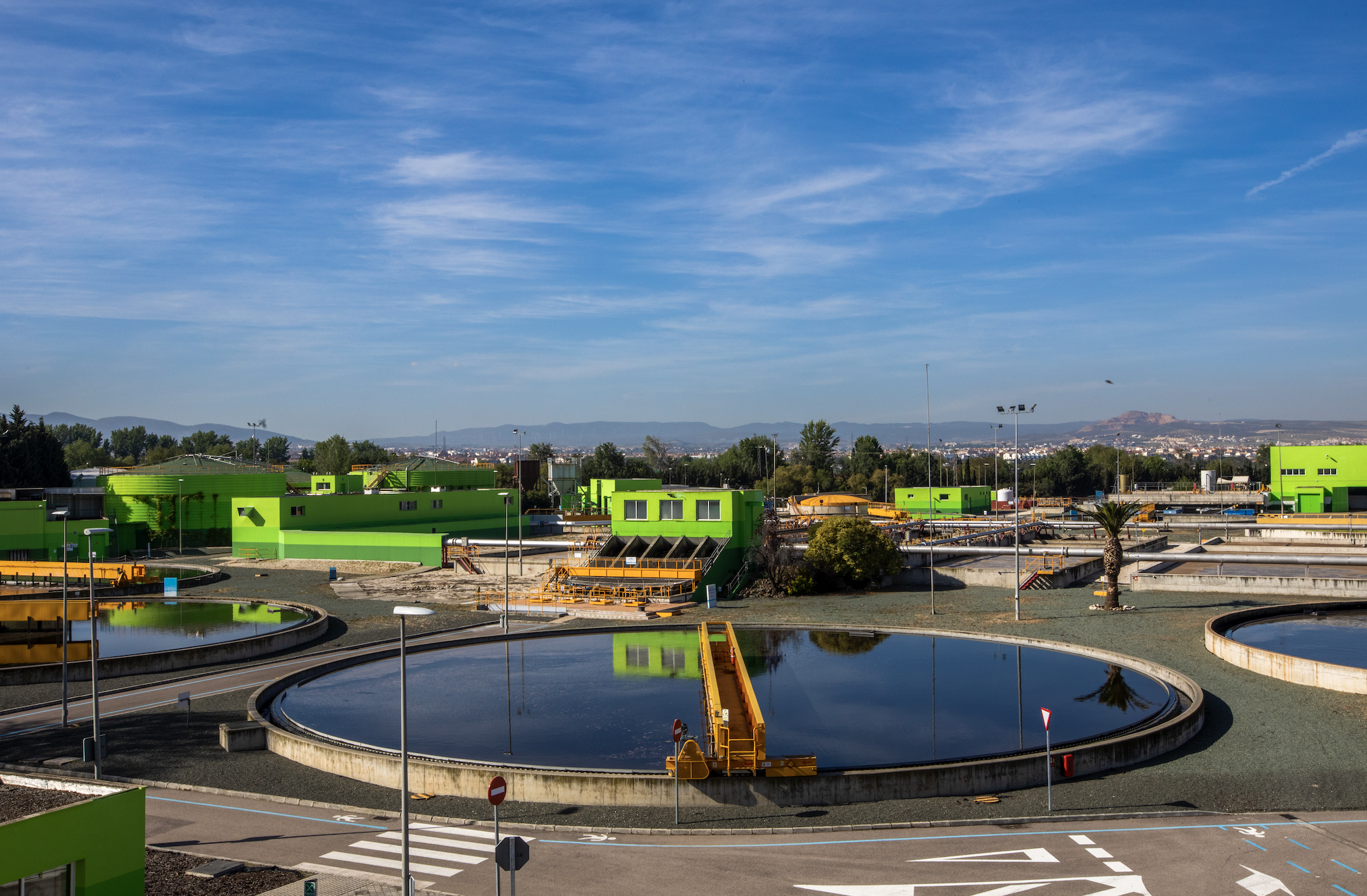The Zerovision project installs three cameras at the Biofactory South in Granada to improve its water treatment process.
● The first camera, located at the entrance of the biofactory, is responsible for detecting spills, while the other two, positioned in two of its secondary settling tanks, detect bubbles that indicate the presence of denitrification processes in the clarifiers.
● This project, funded by the Ministry of Science and Innovation and NextGen Funds, is led by Hidralia and involves the participation of Cetaqua, EMASAGRA, and the University of Málaga.
The Zerovision project has installed three cameras at the South Biofactory in Granada to monitor certain processes related to wastewater treatment plants and sanitation networks, thereby improving the purification of its waters.
This initiative, funded by the Ministry of Science and Innovation and the European Union’s Next Generation Funds, aims to detect the buildup of various types of sediments and waste to prevent blockages and avoid spills that could cause system overflows.
Additionally, Zerovision seeks to detect nitrogen microbubbles early to anticipate problems in the operation of biological reactors. The system proposed by this project monitors basic quality and temperature parameters during the sludge sanitization processes to ensure the elimination of pathogens and enable its agricultural reuse.
Anticipation, optimization, and control: key elements for improving water treatment.
To achieve this, three cameras have been installed at different points of the South Biofactory in Granada. The first camera is located at the entrance and is responsible for detecting spills that affect the treatment process.
Meanwhile, the other two cameras are detecting bubbles that indicate an excess of nitrogen in the secondary settling tanks, which could hinder the separation of the clarified water. This task is carried out through Edge Computing, a local architecture that accelerates data processing and response times.
“Thanks to the use of Computer Vision, we can anticipate events in the treatment cycle, gaining in anticipation, optimization, and control” said David Aguilera, Project Manager in the Efficient, Safe, and Digital Operations area at Cetaqua.
The installation of these cameras will contribute to achieving the project’s goal of monitoring treatment processes to anticipate problems in the system’s operation, thereby improving water quality.
The Zerovision project is led by Hidralia and involves the participation of Cetaqua Andalucía, the University of Málaga, and Emasagra. Project CPP2021 009032 funded by MICIU/AEI/10.13039/501100011033 and by the European Union’s NextGenerationEU/PRTR.


